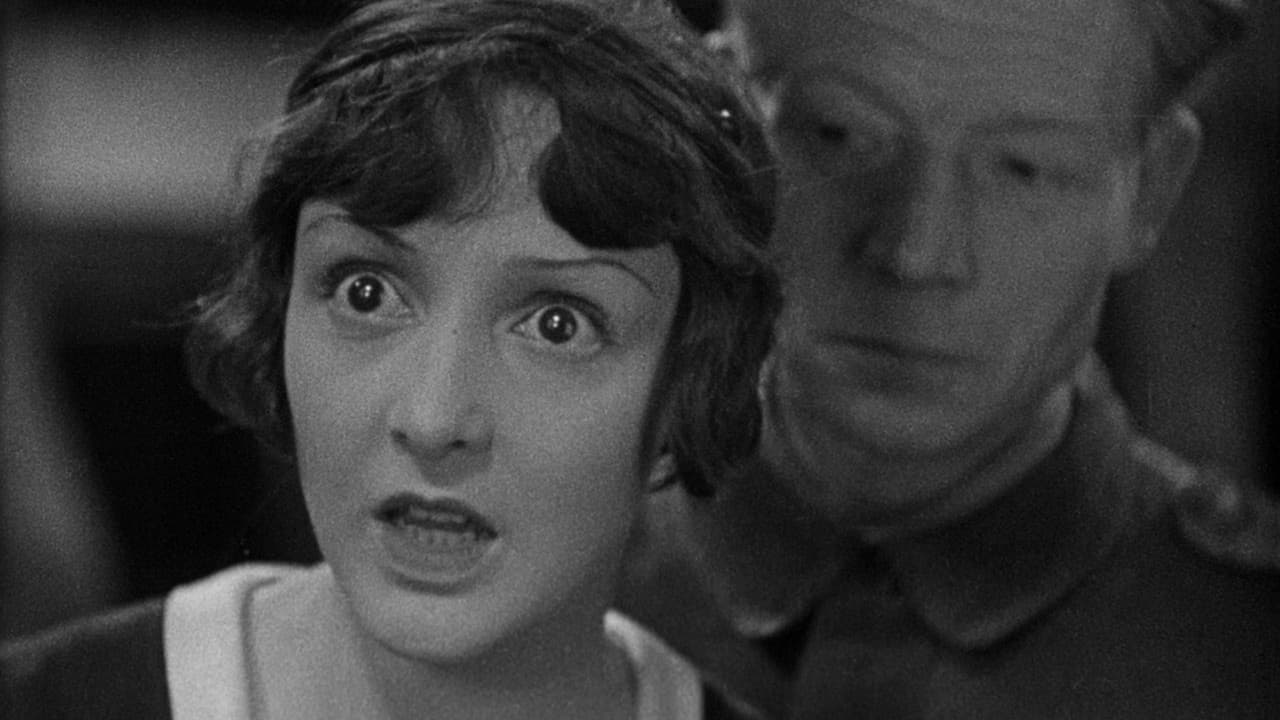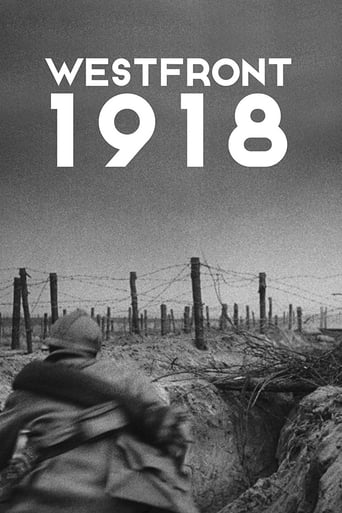Acensbart
Excellent but underrated film
FrogGlace
In other words,this film is a surreal ride.
Sabah Hensley
This is a dark and sometimes deeply uncomfortable drama
Married Baby
Just intense enough to provide a much-needed diversion, just lightweight enough to make you forget about it soon after it’s over. It’s not exactly “good,” per se, but it does what it sets out to do in terms of putting us on edge, which makes it … successful?
Horst in Translation (filmreviews@web.de)
"Westfront 1918: Vier von der Infanterie" or "Comrades of 1918" is a German black-and-white sound movie from 1930, so this one was made shortly before the Nazis came into power. The director is Georg Wilhelm Pabst again, one of the most successful filmmakers of his generation. I don't know any of the cast, but writer Ladislaus Cajda, who adapted the novel here for the film, worked with Pabst on several occasions and has his name attached also to a couple big films from that era. "Westfront 1918" runs for slightly under 90 minutes, at least in the version i saw. i see other runtimes here on IMDb and these may either include lost segments or just fewer frames per second.The movie is about a group of German soldiers during the days of World War I. War is depicted here as something gruesome, something that needs to be avoided at all costs because of the pain and casualties it brings. You can imagines that Hitler and his gang did not like this approach at all as they identified with war as something heroic, something inevitable in order to bring Germany to glory. From that perspective, it is certainly an interesting watch, even if Pabst obviously couldn't know yet what would happen in the next 15 years. Being banned by the NSDAP is quality an attribute that makes a film worth seeing, but sadly it is just the approach that is right and interesting. I cannot say I cared for the story here or for any of the characters in particular. Overall, just not a good watch. Thumbs down.
MartinHafer
This movie has an awful lot in common with another film that also debuted in 1930. Both this film and ALL QUIET ON THE WESTERN FRONT are terrific World War I films that give an awful and realistic view of the war from the perspectives of ordinary German soldiers. As a result, both are also profoundly anti-war films that were later banned by the Nazi government that took power just a few years later. Of the two, ALL QUIET ON THE WESTERN FRONT is a slightly better film because it has an excellent back story (in other words, setting up the characters and giving them some depth). Instead, WESTFRONT 1918 is more like a hidden camera that just shows parts of the war--only towards the very end of WWI. Also, unlike ALL QUIET, this film only once follows one soldier home and shows life outside the battlefield. Mostly, the film is just one battle scene after another after another. Despite seeming a tiny bit out of context because of this, it is still a super effective and moving piece of film. A truly well-made and exceptional film with ultra-gritty realism. It is occasionally tough to watch, as there are corpses everywhere and the action is often up close and very personal.As I said, this film isn't quite as perfect and profound as ALL QUIET ON THE WESTERN FRONT, though it actually is better than the exceptional French film, J'Accuse or THE EAGLE AND THE HAWK--two other terrific WWI films that emphasize the futility and waste of this stupid war.
Tony Patriarche
I found this film utterly gripping. If Wilfred Owen's poems about the first World War could be transferred to film, this would be the result -- dirty, frightening, wholly concerned with the men in the trenches and their loved ones, not the high strategy of war.The crude photography (by later standards), unsophisticated but realistic special effects, the constant barrage of explosions in the soundtrack somehow make this picture of trench warfare more real, as though it were a home movie. But behind the apparent crudity is expert film-making; for example, when the clouds of poison gas blow away only to reveal the advance of unstoppable tanks against a bleak landscape of posts and barbed wire we realize the futility of the entire operation. There is never a distant horizon, just the immediate surroundings or the next line of barbed wire and pickets. Nevertheless, there is little symbolism here, just a close-up picture of how life (and death) in the trenches must really have been.** Possible spoilers follow ** In one of the most compelling scenes, the Student's comrades find his dead body in a mud hole; all they can do for him is throw a few spadefuls of earth on the body. The tight, understated camera-work underlines the restricted world and helplessness of the protagonists. There is a strong emphasis on how the ordinary person is trapped in the process of war. In several scenes an actor apologizes, both in the trenches and when Karl finds his wife in bed with the butcher: each time the subtitle says "It wasn't my fault", but the German is closer to "I couldn't help it". At the end, the mad and dying Karl (Diessl) sums it up: "It's everybody's fault". A French soldier tries to gain comfort from pressing Karl's dead hand; is it hope for rapprochement, or more futility?
Nazi_Fighter_David
G. W. Pabst is one of the few cinematic geniuses... The range and diversity of his films are enormous, from studies in war to psycho-analytical case histories... 'Westfront' is a stark, impressive film, with a plot somewhat similar to Lewis Milestone's 'All Quiet on the Western Front'... The film follows the existence of four ordinary soldiers fighting on the French front during the last months of the war... Between them, they experience love, infidelity, insanity, and, ultimately, death... They are the innocent and helpless victims of a grotesque stupidity, and the poignancy of their predicament is emphasized rather than diminished by Pabst's austere approach and the film's pervading atmosphere of pessimism... Pabst's intention is to remove all hints of glory and romance from war... Again and again certain motifs reappear in the film: the trenches, the barren stretch of land in front of the German lines, torn and removed, decorated with barbed wire, and shrouded in smoke and fog... By the process of repetition of the same scene (dialog is kept to a minimum and there is effective use of natural sounds) Pabst conveys the muddy chaos and monotony, but, above all, the isolation and deadliness... In one impressive scene the fog slowly dissolves, and in direct proportion to its rate of dissolution, hope rises of breaking out of the claustrophobic fear that the men (and now the audience) feel, until the spiritual elation caused by that prospect is shattered as we see that they are confronted by row upon row of tanks, steel monsters bearing fire and destruction...'Westfront' is, as the French film historians, Maurice Bardèche et Robert Brasillach have described it, a 'sombre and hopeless picture of war.'

